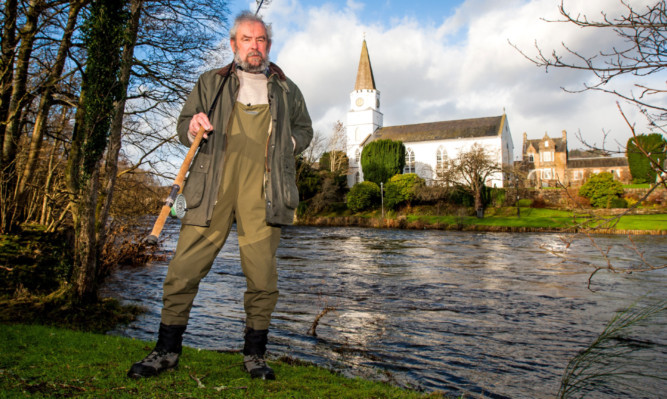Anglers have condemned “draconian” new rules which it’s feared could force the closure of clubs in Perthshire.
From April 1 a 100% catch and release policy on all Scottish rivers designated as Category 3, indicating low numbers of salmon in the water, will come into force.
Although the classification can change from year to year, critics say the methods used in the decision-making process are flawed.
One of the rivers affected by the change is the Earn. Local angling clubs are already seeing a drop in membership and it’s feared that some could cease to operate as fishermen go elsewhere in order to keep their catch.
Pat Silvey, secretary of Comrie Angling Club, said he expected that up to half their current members would choose not to renew, putting the club at risk of closure.
He said: “The right to take the occasional fish for the pot is historical, and is ingrained in the culture of the working man who fishes. Our club already runs at a small annual loss but membership loss on that scale would make it unsustainable.
“There will also be a knock-on effect on Comrie’s economy I’d estimate that at least 25 of our members keep caravans on one or other of the village sites, and drink in the pubs, eat in the restaurants, and buy stuff in the shops when they are here.
Mr Silvey claimed data used for the new policy by Marine Scotland was “deficient and flawed” and said the salmon population in the River Earn is in good health.
Crieff Angling Club has already seen a slump in members.
Club president Alan Brock Jr said: “We have country members, which is anybody outside the six-mile radius of Crieff, who get invited in every year and we’re about 30% down on that so far.
“That’s just the start of it. If our ordinary local members in Crieff follow suit then who knows? It could be a financial crisis.”
Dr David Summers, of the Tay District Salmon Fisheries Board, called the move “draconian” and said droughts and poor reporting of catch numbers could skew the system against some rivers.
A spokesman for the Scottish Government said they were looking at refining the system.
“Restrictions on our fisheries are never taken lightly but action to conserve stocks is, in the long term, essential to protect the sustainability of the communities and ecosystems that they support,” he added.
“We are engaging with local biologists employed by the Fisheries Trusts and the District Salmon Fishery Boards to discuss the current process and look at how the data supporting the determination of conservation status can be developed and refined for future years.”
